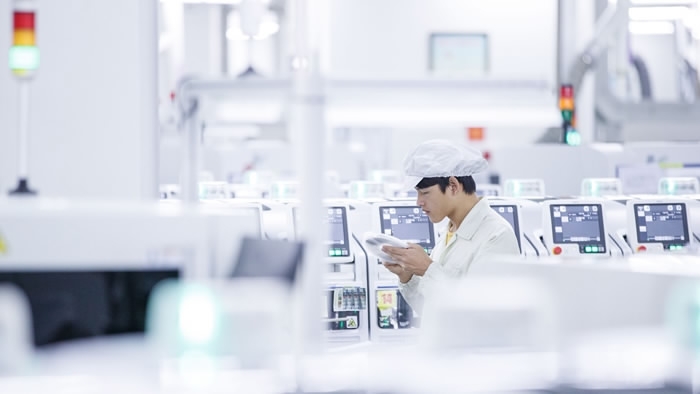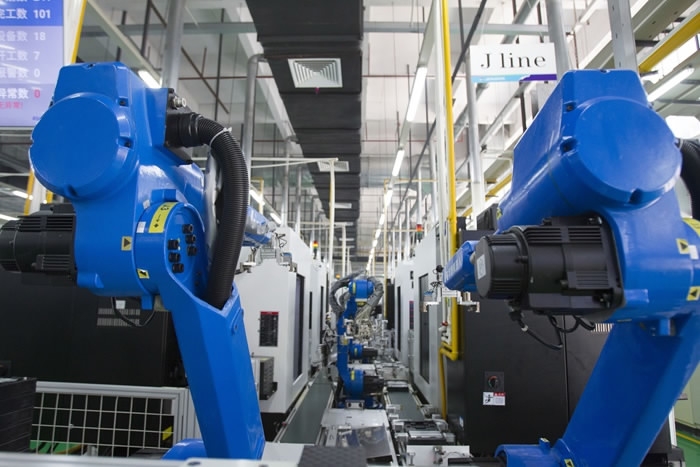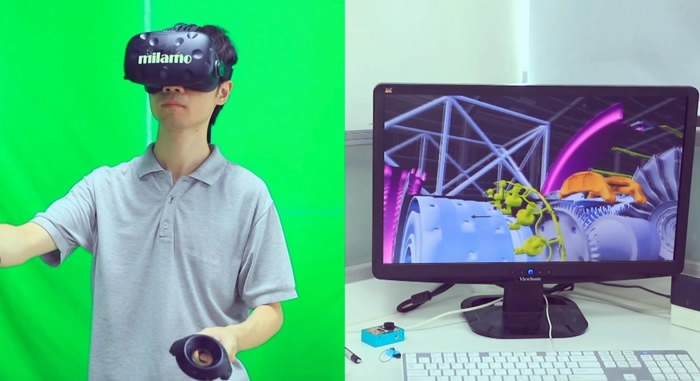
Tech & Sci
14:10, 11-Sep-2017
China Footprint: World factory embraces intelligent manufacturing
By Ge Yunfei

Situated in south China's Pearl River Delta region, the city of Dongguan is known for being the world's largest consumer electronic manufacturing base. But after its labor-intensive industries were hit by the 2008 financial crisis, Dongguan began its process of transformation.
For instance, smartphones – a thing most people can't live without in this booming and expanding information age. In 2016, nearly 1.5 billion smartphones were produced around the world, with a staggering one-fifth manufactured in Dongguan, a manufacturing hub of apparel and technology.
Dongguan started with processing material provided by overseas clients. Anything from toys to shoes, from home appliances to electronic products, orders just kept coming in over the last few decades. The city boomed in a short period of time and more than six million migrant workers flocked to the city to form the largest manufacturing work force in the world.

An unmanned factory of Guangdong Janus Precision Manufacturing. /VCG Photo
An unmanned factory of Guangdong Janus Precision Manufacturing. /VCG Photo
But for companies depending on orders from outside and involved in the low-end of the supply chain, crisis may come at any moment.
"In early 2015, we signed around 20 big deals. But by the end of that year, lots of clients canceled orders and we only had three orders left. We knew we had a big problem," Huang He, general manager of Guangdong Janus Precision Manufacturing, told CGTN.
Janus used to be number one in China when it comes to making the plastic back plates of smartphones. But when metal back plates suddenly took over, to adapt or to die were the choices left for Janus.
But the company created a third option by opening an intelligent factory, where 160 automated machines carve metal plates without human instruction.
Huang said: "In this factory, we reduced the number of workers from around 197 people to just 33. And the whole manufacturing process is connected to the cloud. Now we can monitor all the real-time statistics and situation inside the factory."
Now the factory can produce 5,000 back plates every day. Janus is planning to upgrade all of their factories to intelligent bases in the future.

Virtual reality technology can help humans become "super humans." /VCG Photo
Virtual reality technology can help humans become "super humans." /VCG Photo
Experts say there are two directions in intelligent manufacturing. The first is making robots like humans, which are exactly companies like Janus are doing – using robots to replace human labor. And the second is making humans like "super humans" or robots, in which the virtual reality technology can help.
Now in high demand are not average migrant workers but skilled technicians, especially those who can control the delicate and complicated automated precision machine tools.
A technology firm in Dongguan is ready to solve that problem with a portable virtual reality device. Factories no longer need to buy the expensive machines to train their interns. Instead, all they need is a set of the VR device.
"It can 100 percent simulate real working environments and devices. Students can operate the machines without any restrictions. So it can greatly reduce a factory's expenses when it comes to buying machines," said Zou Yan from the Dongguan Future reality Digital & Tech.
As VR makes the training of a technician cheaper and much faster, Dongguan is also trying to replicate the real manufacturing process in the virtual world.
Xie Haosheng, CEO of a local start-up named Milamo, told CGTN that now virtual reality technology can basically replace the traditional computer aided design software. Engineers even can use VR to design the components of airplane engines.
"Dongguan has over 30 thousand manufacturing firms, which can be greatly boosted by virtual reality and augmented technology. I believe AR and VR technology will play a key role in transforming Dongguan into a world intelligent manufacturing base," said Ye Jianghua, secretary general of Dongguan Virtual Reality Industry Association.
In Dongguan, a future of intelligent manufacturing is unfolding. The city may accomplish a new turnaround by turning virtual reality into real reality.
1893km
Previous episodes:

SITEMAP
Copyright © 2018 CGTN. Beijing ICP prepared NO.16065310-3
Copyright © 2018 CGTN. Beijing ICP prepared NO.16065310-3